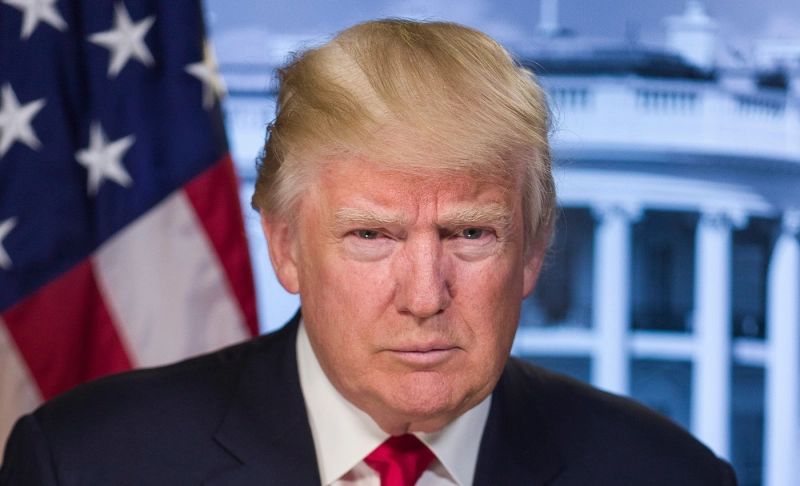September 11 2020
True: Trump achieved the first Middle East peace deal in 25 years.

The Verdict True
The United Arab Emirates is the first major Arab state to recognize Israel since the Israel-Jordan Peace Treaty was signed on October 26, 1994.
On August 13, 2020, Israel and the United Arab Emirates announced that they were signing a peace deal in a bid to normalize diplomatic ties and forge a broad new relationship. Under the accord which U.S. President Donald Trump helped broker, Israel agreed to suspend its planned annexation of areas of the occupied West Bank, in exchange of which the UAE will treat Israel as it would any other country it has friendly relations with — making it only the third Arab country to have such open relations with Jerusalem. A joint statement released by the US, Israel, and UAE says, ‘Israel and the United Arab Emirates will join with the United States to launch a Strategic Agenda for the Middle East to expand diplomatic, trade, and security cooperation. Along with the United States, Israel and the United Arab Emirates share a similar outlook regarding the threats and opportunities in the region, as well as a shared commitment to promoting stability through diplomatic engagement, increased economic integration, and closer security coordination.’ Trump is expected to hold a signing ceremony on September 15. The peace treaty has featured repeatedly in Trump’s campaign speeches. A press release issued by the White House said the United Arab Emirates is the first major Arab state to recognize Israel since the Israel-Jordan Peace Treaty was signed on October 26, 1994. The Voice of America stated President Donald Trump had brokered a historic peace deal between Israel and the United Arab Emirates, or UAE. It is the first agreement to normalize relations between Israel and a major Arab country in 25 years. The hope is that more Arab and Muslim countries will follow the UAE’s lead and normalize relations with Israel. The agreement will be known as the Abraham Accord as the Biblical figure of Abraham is considered the father of the three main religions in the region: Judaism, Christianity, and Islam. As U.S. Ambassador to Israel David Friedman explained that no person better symbolizes the potential for unity among all these three great faiths than Abraham, the VOA reported. Foreign affairs analyst Robin Wright wrote in The New Yorker that the agreement is only the third time Israel has won recognition from one of the twenty-two Arab states. The first was the 1979 peace treaty with Egypt. The second was with Jordan in 1994. In 1994, Jordan became the second Arab country to sign a peace treaty with Israel. In 1988, after an initial agreement between the two countries crumbled, Jordan abandoned its claims to the West Bank, acquiescing to a deal between the Palestine Liberation Organization (PLO) and Israel. The Oslo Accords, under which the PLO recognized Israel and was allowed to form the Palestinian Authority in the West Bank and Gaza, paved the way for an Israel-Jordan deal. The Washington Declaration came into effect in July 1994. It was signed by Jordan’s King Hussein and Israeli Prime Minister Yitzhak Rabin under the watch of U.S. President Bill Clinton. The UAE-Israel agreement comes after 26 years. Foreign policy experts have expressed skepticism with regards to the Abraham Accord ushering in peace in the region and have highlighted that ties between the two nations had been improving even before the deal was struck. Dov Vaxman, Director of the UCLA Y&S Nazarian Center for Israel Studies, wrote in The Conversation that since the United Arab Emirates and Israel have never been at war, the new agreement between them is not really a peace treaty. The agreement will officially begin upgrading relations that have been quietly improving for some time, a process that will probably unfold slowly and tentatively. Until now, the growing Israeli-Emirati relationship has been conducted informally and secretly. It was largely focused on sharing intelligence to counter their mutual enemy, Iran. The new deal will bolster this de facto alliance against Iran, he wrote. The Council of Foreign Relations observes that Israel and the UAE have been inching toward normalization in recent years. In 2015, Israel opened a diplomatic office in the Emirati capital of Abu Dhabi tied to the International Renewable Energy Agency; senior Israeli officials have visited Abu Dhabi; Israeli athletes have participated in regional competitions in the UAE; and Israel is set to participate in Dubai’s World Expo 2020, which is now scheduled to open in October 2021 due to the coronavirus pandemic. The Palestinian leadership has widely criticized the deal. Palestinian officials maintain that nobody consulted with them before, reported The New York Times. Husam Zomlot, the head of the Palestinian mission to the United Kingdom, was quoted saying that the agreement is damaging to the cause of peace because it takes away one of the key incentives for Israel to end its occupation — normalization with the Arab world. Vaxman stated it’s far from clear that the Israeli-Emirati agreement will help the prospects for peace between Israel and the Palestinians.


